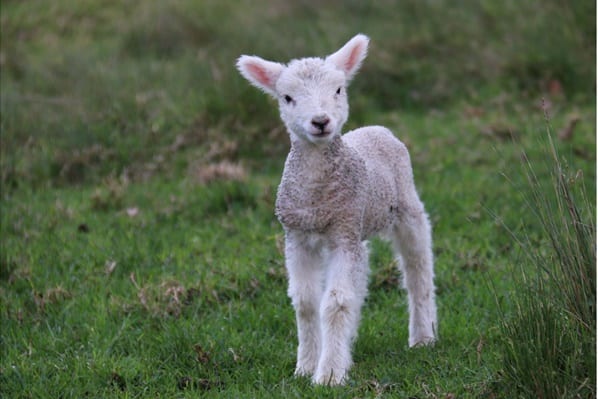I hesitated to write about the tragic death of Robin Williams. I know very little about clinical depression, so I fear saying something stupid or ignorant about it – and please forgive me if I do. The better part of wisdom is to stop blogging and learn from the experts about depression. And I’d like to begin with a disclaimer: I’m interpreting what Robin Williams said about “a loving God.” But please don’t misunderstand me. I’m not saying that if you are depressed, just turn to God. I’m not against turning to God, but when it comes to something as serious as depression, please turn to professional help.
As I watched the news reports over the last few days, I’ve come across many interviews with Robin Williams. I was surprised to discover that far from being just a great comedian, Williams had some profound things to teach us about human nature and the Christian faith.
For example, in a 2006 interview with Diane Sawyer, Williams talked about “the ultimate Christian gift”:
I would call it the ultimate Christian gift. It’s that idea of you are back and you realize that the things that matter are others way beyond yourself. Self goes away. Ego, bye bye. You realize that there are a lot of amazing people out there to be grateful for and a loving God. And other than that, good luck. That’s what life is about.
According to Williams, the ultimate Christian gift is loving relationships based on the love of God. Indeed, as First John states, “God is love.” Through the doctrine of the Trinity, Christianity makes the bold, beautiful, and awe-inspiring claim that God exists in relationships of unconditional love. God created us in God’s image, a reminder that God calls us to imitate divine love by relating to one another with unconditional love. For Williams, the things that matter most are beyond ourselves, beyond our ego, because the things that matter are relationships that reflect the love of God that always reaches out to the others. As First John continues, “Beloved, let us love one another, because love is from God; everyone who loves is born of God and loves God.”
And yet, Williams ended his statement with a warning. After expressing his gratitude for the love of God and his relationship with “a lot of amazing people,” he said, “And other than that, good luck.”
Williams wished us luck because he knew that we have a tendency to seek love and approval from those who are “other than that” – from other people and cultural values whose love is conditional and who don’t have our best interest in mind.
That’s why it’s incredibly difficult for us to believe the ultimate Christian gift of love. The truth is that our relationships with one another are rarely based on God’s unconditional love. They are often based on conditional love that seeks to earn approval from others.
The problem with having to earn approval is that we never know if we are worthy enough to keep it, so we will always be striving for it. Theologian James Alison puts it like this in his book Jesus the Forgiving Victim, “We know how easy it is for us to depend entirely on [others] for approval, for identity, a sense of who we are and what we are worth. And we also know how easily we can lose ourselves, sell ourselves out, in order to win, or keep, approval from people.”
Williams wished us luck when we fall into the ego-centric trap of earning approval and love from others because it can suck our souls dry. I want to be clear that this is not the same as clinical depression, but the desire for the constant approval from others can lead to a real sense of despair because we never know if we are worthy enough to be loved. Approval is always defined by our last great achievement and failure is always knocking on the door. As opposed to creating relationships of love, we can easily fall into a pattern of competing with others for approval. Soon, we become jealous of their success and we begin to hope that others fail so that we can appear more successful.
When we fall into that soul-sucking pattern of relating to one another, we want to escape.
Williams talked about his desire to escape in a 1989 interview with Barbara Walters. She stated that, “When we hear about people using drugs, most of the time they use them to get a high.” Williams responded that, “For me, it was basically a great way of escaping. It was a great way to cut off from people.”
The ultimate Christian gift is about relationships of unconditional love. That’s what life is about. And so when we fall into relationships of conditional love based on earning approval from others, we want to escape because, deep down, we know that we were made for so much more.
We were made for receiving and sharing the unconditional love of God. In another interview with ABC, an older Williams gives advice to his younger self about the things that matter,
Don’t be running so fast. How much have you loved? How much have you loved doing what you do? Or loved being with the people? If you can answer that question pretty positively, then you’re doing okay. It’s a good life.
“How much have you loved?” We all want to be in relationships of receiving and sharing unconditional love and approval. In fact, as creatures made in the loving image of God, our very identity depends upon it. When we deny that fact, we are likely to fall into a pattern of earning conditional love and approval from others. Eventually, we will find ourselves in despair and seeking to escape because we know that a love based on conditions isn’t really love at all. On the other hand, when we receive the ultimate Christian gift of God’s unconditional love and approval, our ego-centric need for approval from others begins to disappear and we find ourselves freely sharing God’s love with others. Indeed, as Williams stated, a life that is based on receiving and sharing that love is what life is all about.
Robin Williams left us with a reminder about the ultimate Christian gift. The things that matter most are relationships that reflect God’s unconditional love. May we receive that gift and share it with the world.











